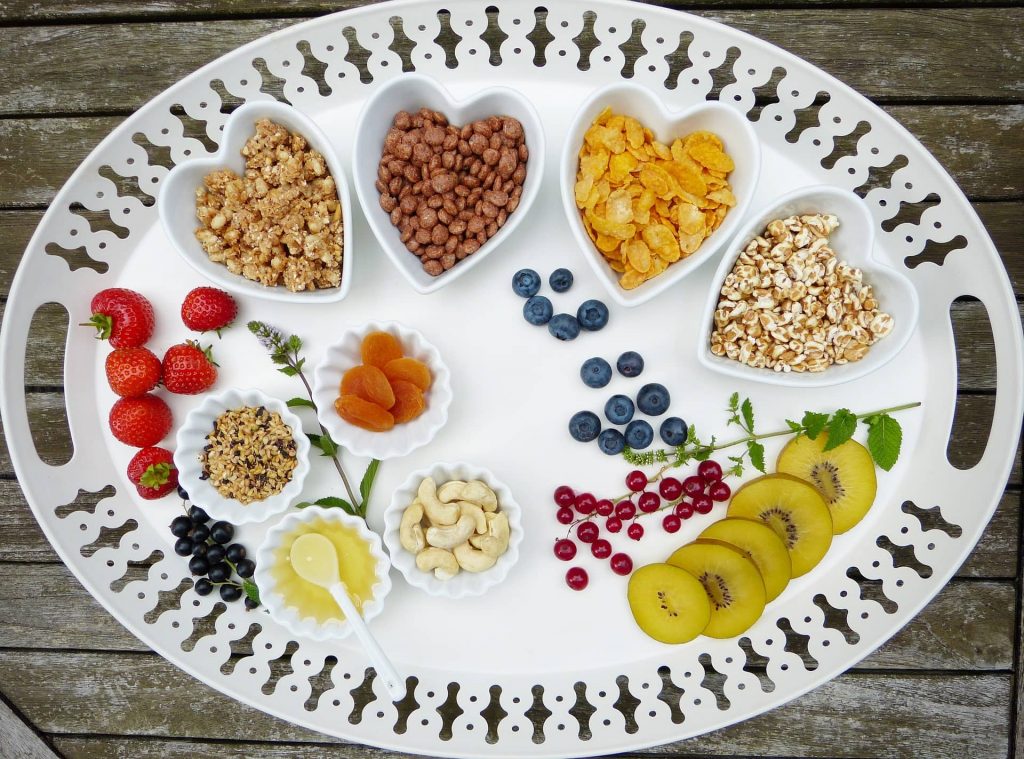Written by Amal Elali

A vegetarian diet is one of which does not consist of any meat, and those who follow this diet are vegetarians. Vegetarians and vegans are sometimes confused for the same thing; however, they are not the same. A vegan diet is similar to a vegetarian diet since meat is excluded from the diet, but it also withholds products produced from animals [1]. Such products may include eggs, cheese, and any animal derived substances.
The question arises as to why is it people choose to become vegan or vegetarian? Is it merely because they care for animals, or are there any benefits? The answer to this question is clear such that the vegan and vegetarian diets have numerous benefits and allows for an increase in survival rate.
The meat diet incorporates animal protein, which is a saturated fat. Processed meats are known to be a carcinogen, such that it increases the risk of cancer [2]. Meat is a saturated fat that can form heterocyclic amines and aromatic hydrocarbons when cooked [2]. This poses a problem since the more people consume cooked meat, the higher the concentration of carcinogenic materials thus further increasing the risk of cancer.
People often times choose to become vegan rather than vegetarian because of the increased consequences of dairy in the diet. Meat and dairy products are rich in fat and cholesterol. Cholesterol is linked to numerous diseases, such as heart disease [2]. Heart disease is the top reason of death causing people to have heart attacks, stroke, and various other linked diseases. An increase in saturated fat and cholesterol in the body also increases the risk of diabetes. According to the American Diabetes Association, those who consume animal protein have a 22% higher risk of developing diabetes [2].
Dairy is constantly being endorsed by athletes and celebrities, but is milk really necessary to be healthy? Dairy products such as milk are full of calcium and thus they are consistently linked to the belief that an increasing amount of dairy in the diet will reduce the risk of breaking bones or getting a fracture. Nonetheless, studies done on children in countries with low rates of dairy consumption showed that those with low levels of consumption had better bone density and thus lower rates of osteoporosis [3]. All in all, there appears to be no evidence that dairy is crucial for maintaining a healthy diet.
Vegetarian and vegan diets are associated with increased consumption of fruit and vegetables, hence an increase in fiber, folic acid, magnesium, and unsaturated fats [4]. Those who refrain from meat and large amounts of dairy typically have less cholesterol and lower risk of heart disease. There are many different benefits to a vegetarian diet with limited dairy and a vegan diet, and thus when questioning whether or not to attempt a change in diet, ask yourself: Do you want to live a healthy life?
References:
1. Definition of Veganism.” The Vegan Society. N.p., 31 May 1970. Web. 28 May 2017.
2. Krantz, Rachel. “8 Reasons Meat Is Bad For You (Yes, Even Chicken).” Bustle. Bustle, 15 May 2016. Web. 28 May 2017.
3. “Dairy: 6 Reasons You Should Avoid It at All Costs.” Dr. Mark Hyman. N.p., 03 Jan. 2017. Web. 28 May 2017.
4.“9 Health Benefits of a Vegetarian Diet.” Dr. Group’s Healthy Living Articles. N.p., 30 Sept. 2015. Web. 28 May 2017.